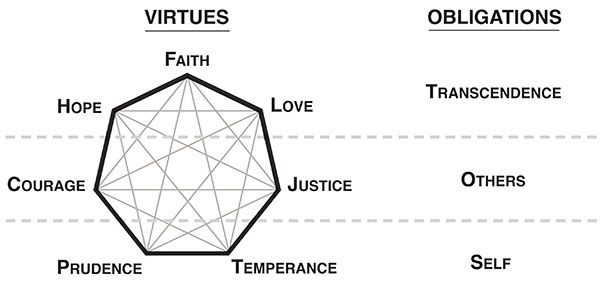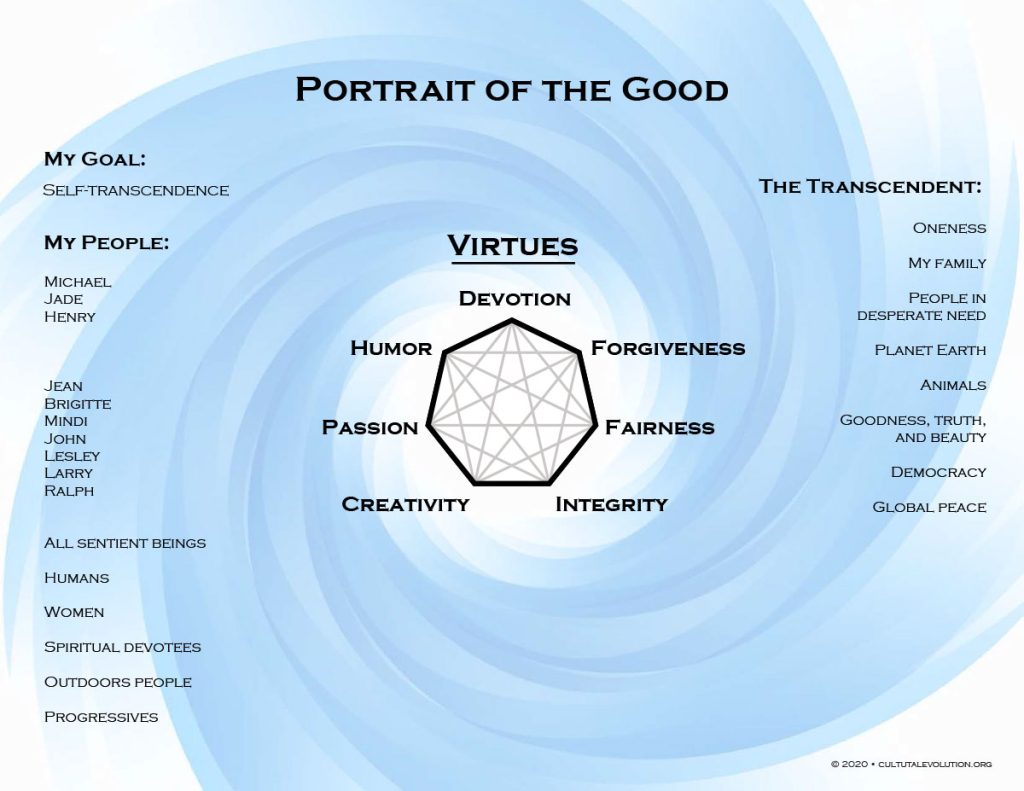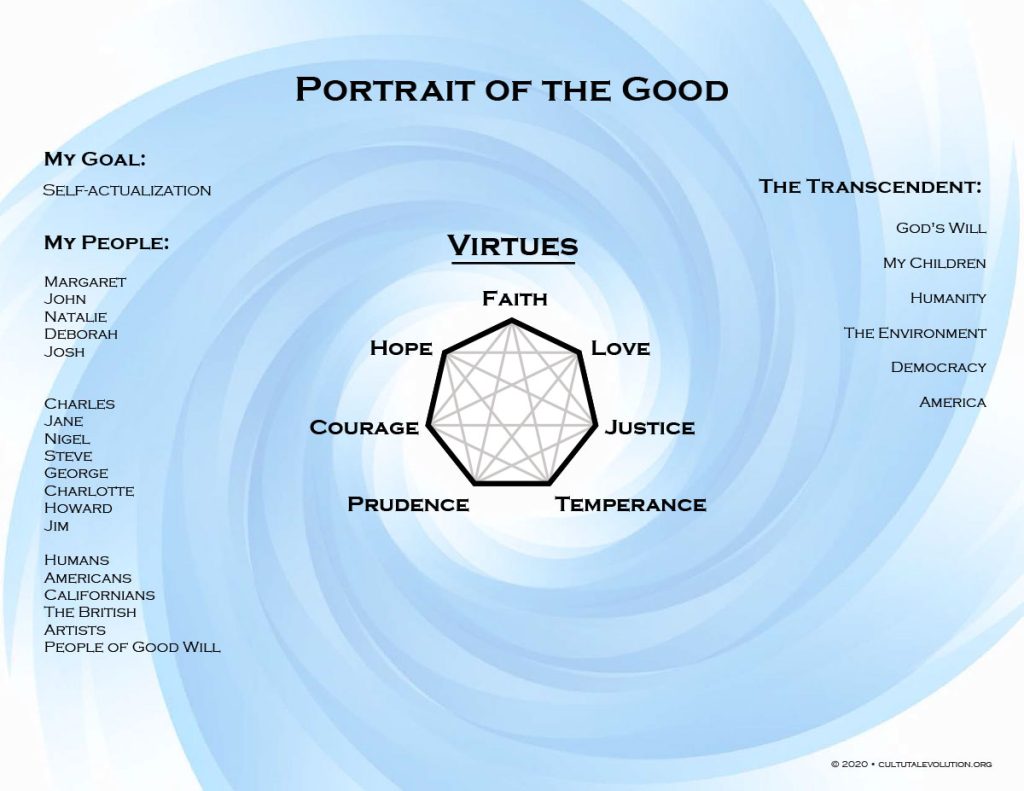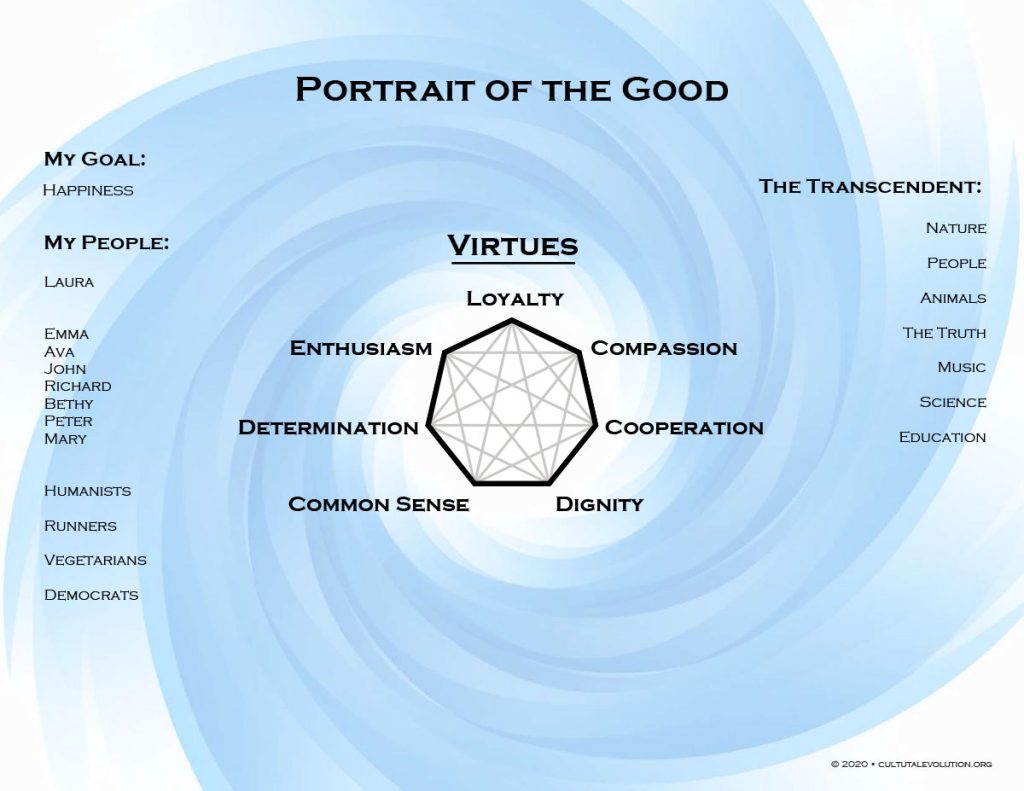Race, to all people who use the term correctly, is a matter of a few easily observed physiological characteristics: the color of your skin, the texture of your hair, and the shape of a few extremities . . . But there is no scientific correlation between those physical features and behavior. The only correlation comes from the conditioning of the consciousness—and that is not the same thing as race. Consciousness and race just don’t correlate.
—Albert Murray
Introduction
The meme of race is like a dead virus, brought alive by the vulnerability of those it feeds upon, attacking the immune system of the citizenry. “White supremacy” is a dead metaphor of this deadly virus. Culture, rather, can be a garden of conscious growth, integration, and synthesis of human roots and branches which expand into a universe of possibility.
Race is also like a weed socially constructed to choke development. The very design of race as an idea enacted invidious division and categorization. Culture, says Nigerian Nobel Laureate of Literature Wole Soyinka, is the “primacy of Source,” a universal spring “nourished by its tributaries, which sink back into the earth, and thereby replenish that common source in an unending, creative cycle.”
Over its approximately 500-year existence, race enacted as an idea has enabled the suppression, repression, exploitation, enslavement, and oppression of some people for the material and psychic benefit of others, hampering the development of an integrated Western and American character and worldview. Our collective nervous systems, from the top to the bottom of the caste hierarchy, has been poisoned by race, inter-generationally. In fact, race has been so enmeshed in the West generally and, in this case, the United States, for so many generations that most people grow up thinking that the fiction of race as a biological essence is actually real.
Race serves as a key component of the sort of “simulated reality” that the character Neo fights against in a contemporary update to the hero’s journey, The Matrix. Another useful characterization of the function of race is philosopher Roy Bhaskar’s term, demi-reality. His MetaReality extension of the philosophy of Critical Realism frames demi-reality as “disunity within difference.” In works from the turn of this century, Bhaskar wrote that demi-reality generates “dualism, alienation, fragmentation,” and is “dominated by hate, split, fear, divisiveness and above all alienation . . .”
Sounds to me a lot like the effect of race over the last 500 years. I think race is a clear example of what cognitive scientist John Vervaeke calls “cultural cognitive grammar,” in this case derived from social conditioning and imprinting we learn from adults at home and in school. I frame such conditioning as the imprint of “unconscious” culture. Race, then, is accepted unconsciously by most people before full individuation and critical thinking develops. Since at least the 18th century, by the time we’re seven or eight years old we, in our language and perceptions, come to realize that racial categories exist. Through conscious culture, however, we can view and constructively critique the conventions of our early conditioning and become cultural agents, deciding what serves us and others and what doesn’t.
If race transfers from generation to generation unconsciously, what about “conscious” culture?
Culture is also transferred “from generation to generation,” wrote American literary great Ralph Ellison in 1970, with “forms of expression” converted “into forms of art” through which “[Black Americans] have projected their most transcendent images of themselves and of the world.” In its artistic mode, conscious culture is thereby intentional, aspirational, and even transcendent.
Ultimately, culture is an infinite game, race a finite game. Infinite games are played by players who play for the purpose of continuing the game of life through culture. Finite games are played by finite players with the objective of “winning” a game that comes to an end. This is a generative vision composed by late theologian James Carse, author of the 1986 classic, Finite and Infinite Games: A Vision of Life as Play and Possibility.
Gardeners celebrate variety, unlikeness, spontaneity. They understand that an abundance of styles is in the interest of vitality. The more complex the organic content of the soil, for example—that is, the more numerous its sources of change—the more vigorous its liveness. Growth promotes growth.
So also in culture. Infinite players understand that the vigor of a culture has to do with the variety of its sources, the differences within itself. The unique and the surprising are not suppressed in some persons for the strength of others. The genius in you stimulates the genius in me.
—James P. Carse
Confusing Race and Culture
In my 57 years of experience as an American citizen, I’ve found that many conflate the nominal racial category “white” with being American or Western. Some well-meaning people (as well as bad faith actors) confuse race and culture when describing the differing somatic and cognitive styles of people originally from Europe, Africa, and Asia. Such views erase the distinction between race and culture and thereby commit intellectual violence.
Those continental differences, aside from historical and environmental influences and worldviews, arise from variations in culture, expressed as idiomatic styles in language and writing, music and the arts, spirituality and philosophy, cuisine, rituals, myths, and games. Moreover, within each continent a vast range of cultural differences and styles exist and have so since each was deemed a continent. To imply, or worse, to state outright, that all Europeans, all Asians, all Africans, maintain negative characteristics of one sort or the other because of race is not only racist, it’s illogical, demonstrably inaccurate, and, come to think of it, stupid.
To extend the point, I’ll get personal: in “racial” terms, I’m not white. But from a cultural and historical lens I am Western and American. So, my cultural roots as an American, as part of a family of multi-generation American citizens of African descent, are also part European. I even have biological European roots. My 23andMe results are as follows: 80% Sub-Saharan African, 18% European, and 2% East Asian and Native American.
As my focus in this post is pro-culture and anti-race, I’ll continue addressing the deadly inadequacy of the race concept: as my mentor Albert Murray said above, consciousness determines behavior not phenotype or skin color, factors underlying “race” which tell us nothing about a person’s subjective response to life’s conditions or challenges, or about their intersubjective ties to others with shared interests and shared values which have not a damn thing to do with “race.”
No matter what racial essentialists and social determinists claim, conscious culture is a generative, holonic, holistic vision of metamorphosis. In this way, conscious culture—a term encompassing the evolution of consciousness and culture in a co-creative dance—is like a butterfly’s cocoon. Conscious culture can ready our wings to fly and thrive right here and now as well as on the other side of this emergence, this collective human phase shift we are experiencing on planet earth.
The words, images, and ideas we invoke and evoke during this liminal stage is crucial, for, as Ellison once said, “writers and poets help create or reveal hidden realities by asserting their existence.” I assert that to move up and beyond the limitations wrought by the meme of race, that decoupling race and culture is not only sufficient: it’s necessary. This is one of the many accomplishments of Albert Murray in his first book, The Omni-Americans, published in 1970:
. . . no American whose involvement with the question of identity goes beyond the sterile category of race can afford to overlook another fact that is no less essential to his fundamental sense of nationality no matter how much white folklore is concocted to obscure it: Identity is best defined in terms of culture, and the culture of the nation over which the white Anglo-Saxon power elite exercises such exclusive political, economic, and social control is not all-white by any measurement ever devised.
American culture, even in its most rigidly segregated precincts, is patently and irrevocably composite. It is, regardless of all the hysterical protestations of those who would have it otherwise, incontestably mulatto. Indeed, for all their traditional antagonisms and obvious differences, the so-called black and so-called white people of the United States resemble nobody else in the world so much as they resemble each other. And what is more, even their most extreme and violent polarities represent nothing so much as the natural history of pluralism in an open society.
—Albert Murray, The Omni-Americans: Some Alternatives to the Folklore of White Supremacy
By the way, the inverse of my personal scenario above holds true too: anyone who identifies as an American has cultural roots which are part Black American—a distinction that for me isn’t “racial.” I’m framing Black American identity and cultural configurations in primarily ethnic and national terms, with shared historical experiences, ultimate values, and “idiomatic styling” as described above. This fundamental Black American-ness as part of American identity may come as a surprise (or shock!) to those given to the cognitive grammar of racial tribalism and myths of purity, but the sooner such a cultural fact is accepted and embraced the better for America’s civil and civic discourse of pragmatist pluralism in an open society.
All of us are part white, and all y’all are part colored.
—Ralph Ellison, 1973 @ Harvard’s Alain Locke Symposium
By any definition of race, even the most makeshift legal one, most native-born U.S. Negroes, far from being non-white are in fact part-white. … None of this is really news. … And yet it is perhaps the second most persistently overlooked flesh-and-blood fact of everyday life in the United States. The first of course is the all but unmentionable but equally undeniable fact that an infinite and ever-increasing but forever hidden number of assumed white Anglo-Saxon Protestants are among other parts, part-Negro.
—Albert Murray
While I can and do accept my European roots as an American, I wonder if nominally white Americans have trouble accepting their Black American cultural roots. Once we divorce race from culture, such an acceptance becomes easier, more embraceable, because it’s free from a horrific association with “race.”
On the other hand, if race continues to be conflated with culture, we will continue to perceive American reality in racial terms, rather than seeing and feeling into what I and founder of the Institute for Cultural Evolution, Steve McIntosh, call “cultural intelligence.” Such conflation mystifies and solidifies mindsets and worldviews grounded on the false idea of race as an unchanging biological essence. Once we transcend the race “meme,” and its grounding in xenophobic confusion and tribal division, there will be more space and energy for the evolution of consciousness and culture.
Anti-Racism, Racialization and the Racial Worldview
In the wake of the brutal killing of George Floyd, the ideology of anti-racism has become a hegemonic force emanating from the post-modern progressive left. Best-selling books by Ibram X. Kendi and Robin DiAngelo, two of the most prominent proponents of anti-racism, are required reading in all from the academy to corporate spaces. The “true but partial” watchword in Integral circles applies to anti-racist dogma, which points to structural and institutional “racism” that results in disparate treatment and inequity suffered by far too many Black Americans.
Yet the partiality far outweighs the truth of anti-racist critique. Amiel Handelsman, my Integral friend and colleague in the field of leadership development, has written perhaps the best constructive critique of DiAngelo’s “white fragility” thesis in his essay, “Supplementing ‘White Fragility’.” In the September 2020 issue of The Atlantic, linguistics scholar and social critic John McWhorter points to the dangers to democratic discourse in the opening paragraph of his article, “Academics Are Really, Really Worried About Their Freedom”:
Our national reckoning on race has brought to the fore a loose but committed assemblage of people given to the idea that social justice must be pursued via attempts to banish from the public sphere, as much as possible, all opinions that they interpret as insufficiently opposed to power differentials. Valid intellectual and artistic endeavor must hold the battle against white supremacy front and center, white people are to identify and expunge their complicity in this white supremacy with the assumption that this task can never be completed, and statements questioning this program constitute a form of “violence” that merits shaming and expulsion.
McWhorter then relates tales, both anecdotal and survey-based, of professor after professor who have reached out to him (and his Bloggingheads.tv colleague Glenn Loury, professor of economics at Brown) to say that they are afraid of voicing any opinions counter to this anti-racist orthodoxy for fear of being shamed, ostracized, or cancelled, losing their status or job. I myself have over this summer heard from several “white” people in the academy and professional work environments who have voiced similar fears and concerns.
Sadly, with its overriding focus on establishing social and political power through an uncompromising, Manichean vision of anti-racism as righteous and true, with any questioning or disagreement with the logic or application of anti-racist dogma being evidence of lack of being “woke,” anti-racist ideology actually re-inscribes race as a category of analysis. An Integral perspective not only includes traditional and modern values that progressive postmodern anti-racists ignore or disavow, it also should, in my view, transcend the concept of race itself.
Racism, whether personal, interpersonal, or institutional, relies of the very idea of race. Without challenging racial ascription, without transgressing the grammar of race as a valid category of human categorization, racism will continue to entrench its fangs in bodies and social forms. How does race perform this vampiric feat? Racialization.
Racialization is the process through which race as a category of invidious distinction is socialized in language and systems. According to Carlos Hoyt Jr. in The Arc of a Bad Idea: Understanding and Transcending Race, racialization occurs in five steps:
- Selecting some human characteristics as meaningful signs of racial difference;
- Sorting people into races on the basis of variations in these characteristics;
- Attributing personality traits, behavior, and other characteristics to people classified as members of particular races;
- Essentializing purported racial differences as natural, immutable, and hereditary;
- Acting as if purported racial differences justify unequal treatment.
Race is produced in the first two steps of the process of racialization. Racial stereotypes emerge in step three. The critical element of naturalizing racial distinctions is achieved in step four, and racism, the doctrine asserting the superiority or inferiority of people based on their membership in races and differential treatment rationalized by that doctrine come to life in step five.
This process of racialization and its reinforcement instantiates a worldview based on race. In Race in North America: Origin and Evolution of a Worldview, Audrey and Brian Smedley position worldview as a lens of meaning construction and maintenance.
Once established and conventionalized, worldviews become enthroned in individuals as mind-sets. They may even achieve the state of involuntary cognitive processes, actively if not consciously molding the behavior of their bearers.
I define race as such a worldview. In the United States, Australia, South Africa, and many other areas of the world, race is a cosmological ordering system that divides the world’s peoples into what are thought to be biologically discrete and exclusive groups. The racial worldview holds that these groups are by nature unequal and can be ranked along a gradient of superiority–inferiority.
As a racial worldview is a consistent aspect of a modernist and postmodernist frame of reference (whereas pre-moderns more embody an ethnocentric worldview), I now contend that a non-racial worldview should become common to Integral metatheory and what author Lene Rachel Anderson, in Metamodernity: Meaning and Hope in a Complex World, calls a “metamodern collective imaginary.” Such an angle of insight and developmental realization was confirmed by Integral philosopher Ken Wilber in a recorded conversation I had with him a decade ago. After he outlined the way what we today call “race” has functioned among human groups from recorded history to contemporary times, Wilber summed it up with the following statement about race:
It’s something we have to transcend; we grow up and grow out of in our developmental stages. And by the time we get into the rational level, fully developed rational thinking, race is no longer a useful concept. And by the time we get to pluralism, it’s actively denied. It’s categorically looked at as useless, the product of oppressive worldviews.
In some cases, it [green, postmodern] overdoes it, to the extent that you’re not even allowed to see commonalities among cultures, because they’re dedicated to letting all cultures be different. So, there’s a multiculturalism that automatically defines all cultures as different but equal, and they can’t [see] four quadrants, and similar stage development that all these cultures go through. And, again, that begins to emerge at Integral levels. And Integral levels continue to define race as useless as a concept. It really doesn’t say anything real or truthful or useful about a human being. [emphasis added]
—Ken Wilber, “Integral Spirituality: A Deeper Cut” audio series
What Is American Culture?
This brief overview of the complex of ideas that ground race and racism now gives way to a discussion of American culture as a complex whole, as a mixture, a hybrid, a pragmatic pluralist composite. Therefore jazz, perhaps the best exemplar in organized sound of American culture, reflects a synthesis of parts or tributaries too. Jazz integrates elements that originated in Africa, Europe, and Cuba into a unique synthesis of feeling and form, technique and passion, individual excellence and what we at the Jazz Leadership Project call an ensemble mindset.
Cultural historian Constance Rourke, in American Humor: A Study of National Character, identified the archetypal figures of the indigenous Yankee, the backwoodsman (partly Native American), and the Negro as taproots of the American character in the era of Andrew Jackson. John A. Kouwenhoven, in works such as A Beer Can By the Highway: Essays on What’s American about America reasoned that American culture derives from the interaction of vernacular or folk traditions and a learned, academic tradition—largely derived from a European intellectual and philosophical heritage. The tension between a more conservative academic orientation and a more free-wheeling make-do-and-improvise-with-what-ya-got style is in part what makes American culture so robust and resilient.
Such a cultural perspective can allow us to view conservative and liberal ideological perspectives as a dynamic of creative democratic discourse rather than the hyper-polarized political environment in Washington, D.C. today. This view of conflict in a democratic context of competitive cooperation respects the right of others to hold their points of view and value sets, expects the same in return, with the responsibility to enter the arena of discourse willing to negotiate, and come to terms of agreement keeping in mind the larger democratic and human values that we all share. If we can’t agree, we can agree to disagree, and exercise our citizenship rights in local, state, and national ballot boxes.
Back to the vernacular: according to Ellison’s riff on Kouwenhoven, the vernacular “is a dynamic process in which the most refined styles from the past are continually merged with the play-it-by-eye-and-by-ear improvisations which we invent in our efforts to control our environment and entertain ourselves.”
Outchorus
As mentioned above, the idea and enactment of race fits what the late James Carse termed a finite game, a rivalrous, win-lose, in group-out group social system. Race, as a social and power dynamic based on the boundaries of phenotype and skin color, has throughout this history of the United States of America reinforced what master journalist Isabel Wilkerson aptly calls an American caste system in her most recent work, Caste: The Origins of Our Discontents.
Conscious culture, rather, is an infinite game, a visionary horizon of open possibilities and playful creativity. As mentioned above, race in its modern guise is only five hundred years old. Yet the concept and practice of culture has a legacy of several thousand years as the symbolic means through which human beings hang together, bridging our biological to cosmic heritage.
We must, indeed, all hang together or, most assuredly, we shall all hang separately.
—Ben Franklin
The choice is yours: race or culture? In the same vein, let’s ask ourselves “what cultural values do we seek to manifest on the other side of this paradigm shift?” As the answers may determine the very future of America and the New World, the fate of humans on the globe may indeed hang in the balance. Please choose wisely.








This approach confirms my international experience in countries where religious, race and cultures create confrontation. Culture as a refreshing look at differences will, however, be difficult in a world where financial, social and economic interests use them as a weapon to prevail.
Thanks, George. Indeed, if financial, social, and economic interests use culture as a weapon, it’s even more imperative for citizens to gain heightened Cultural Intelligence.